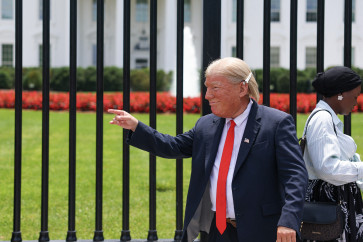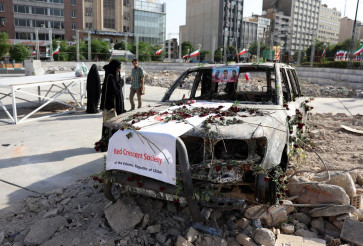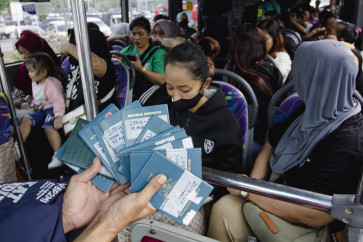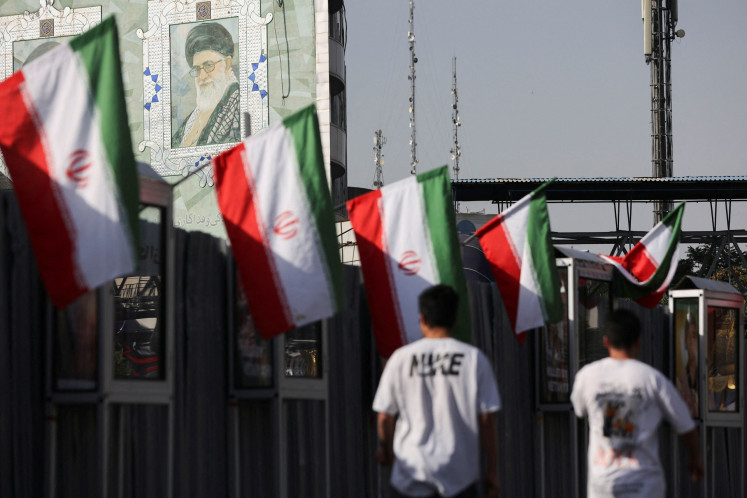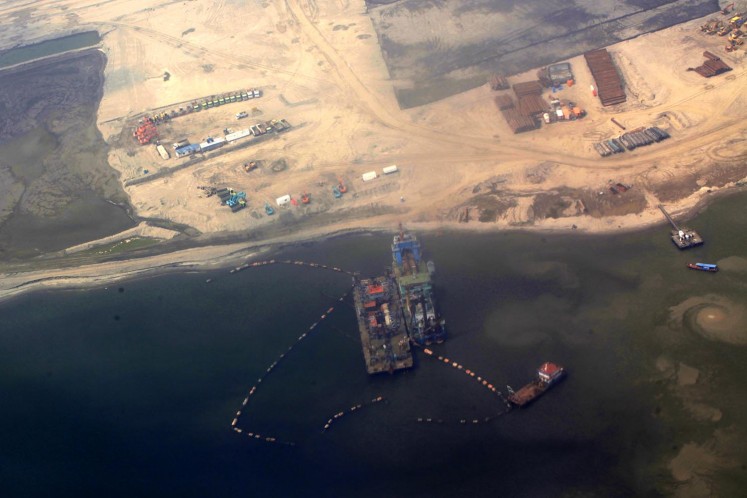Popular Reads
Top Results
Can't find what you're looking for?
View all search resultsPopular Reads
Top Results
Can't find what you're looking for?
View all search resultsFilm on ‘G30S/PKI’ betrays humanity
Most Indonesians must have seen or at least heard of the film by Arifin C Noer entitled Pengkhianatan G30S/PKI (Treachery of the G30SPKI)
Change text size
Gift Premium Articles
to Anyone

M
ost Indonesians must have seen or at least heard of the film by Arifin C Noer entitled Pengkhianatan G30S/PKI (Treachery of the G30SPKI).
After all, at the 1985 Indonesian Film Festival, this film received an award as the best-selling film of the preceding calendar year.
This film might just become the best-selling Indonesian film ever one day, as schoolchildren as young as 10 were required to watch it despite it being full of scenes of violence and blood.
So an award for a film that was imposed on so many people to watch? In other words, the “best-selling” status was achieved not because of its own merit, but rather because of pressure.
In general trade law, consumers have the legal right to a refund if they have been unfairly pressured into buying a product they did not want. But instead of being criticized for having sold hundreds of thousands of tickets by “force”, the film got an award! Are you kidding?
No, the shameless New Order government could just do whatever it wanted then and still get praised by many. But information was restricted. Anyone caught criticizing the government might have ended in prison or worse, disappeared without a trace. Even if we disagreed with the government, we simply did so in silence.
After the Reform era followed by the digital age, information could be acquired more easily. On March 14, 2000, then president Abdurrahman “Gus Dur” Wahid asked for an apology to the victims of what should be termed the 1965 Genocide. The documentary film Mass Grave, Digging Up The Cruelties by Lexy Rambadetta was released in 2001, revealing the brutality of Soeharto’s people in imprisoning, torturing and murdering alleged communists and their sympathizers.
In this film, Gus Dur cites the “mistaken understanding” that blamed the Indonesian Communist Party (PKI) for the murder of the generals on Oct.1, 1965. He also insisted that the history regarding the 1965 mass murder had to be straightened.
Moreover, because of the Freedom of Information Act in the United States, the Central Intelligence Agency has been required to open old documents. Some of the already opened documents reveal that in early 1966, the US turned over a list of people to be “eradicated” to the Indonesian Army. Marshall Green, the then US ambassador to Indonesia, stated that the US should first set the story of the evil of the PKI. After that, the Australian media followed the guidelines of slowly spreading propaganda against the PKI. The propaganda against the PKI had thus been planned years before Oct. 1, 1965.
In November 2015, at the International People’s Tribunal held in the Hague, the Netherlands, which received worldwide attention, the international judges concluded that there was severe attacks and brutality against those associated with the PKI, as well as their families. The evidence is abundant to demonstrate that the film G30S is not just a lie but a cruel slander against the victims of the genocide.
But surprise, surprise: this film has recently been promoted again, as a documentary that portrays the truth, as if there has been no other more important or more interesting documentary produced in Indonesia. President Joko “Jokowi” Widodo even watched the film together with military personnel and local residents in Bogor on the anniversary of the “G30S” coup attempt on Sept. 30 and offered no obvious criticism of the film.
The statement of the former wife of the film’s director is no less disappointing. Jajang recently stated that there was no pressure whatsoever on the director Arifin at the time, and that he made this film out of his love for the Indonesian nation and people.
Without criticizing the film, Jajang added that Arifin was detailed, careful and meticulous in creating this film. Seriously?
If this statement was made during the New Order, I could understand it. But now?
Even with very limited information during the New Order, anyone who was careful and meticulous and used a bit of one’s brain would have at least suspected why censorship was so strict and why any criticism of the government was muffled. And really, would you not be suspicious of a government that intended to glorify itself through a film that all its people had to watch?
So, I don’t buy this argument at all. Especially not now. Not after the New Order was toppled with a long struggle that involved so much sacrifice and blood. Not after the poet Widji Thukul had been proclaimed missing. Not after the activists Munir and Ita Martadinata had been murdered.
During the New Order, I would have assumed that Jajang’s statement was made out of fear and to protect her life. But now, I call her statement an act of betrayal of humanity, just like the film that her former husband made.
____________________________
The writer is a senior lecturer at the School of Oriental and African Studies, University of London and author of The End of Silence: Accounts of the 1965 Genocide in Indonesia.

